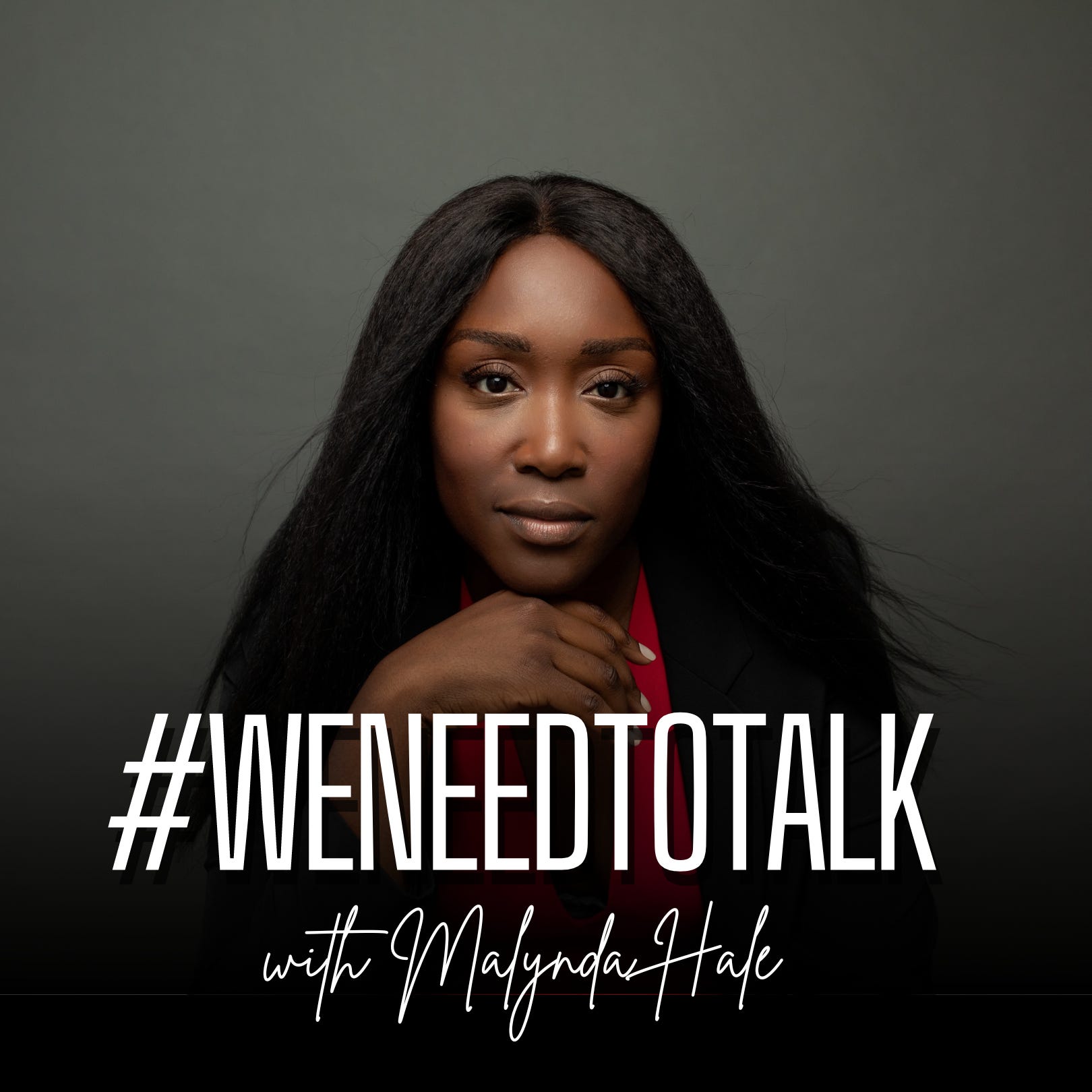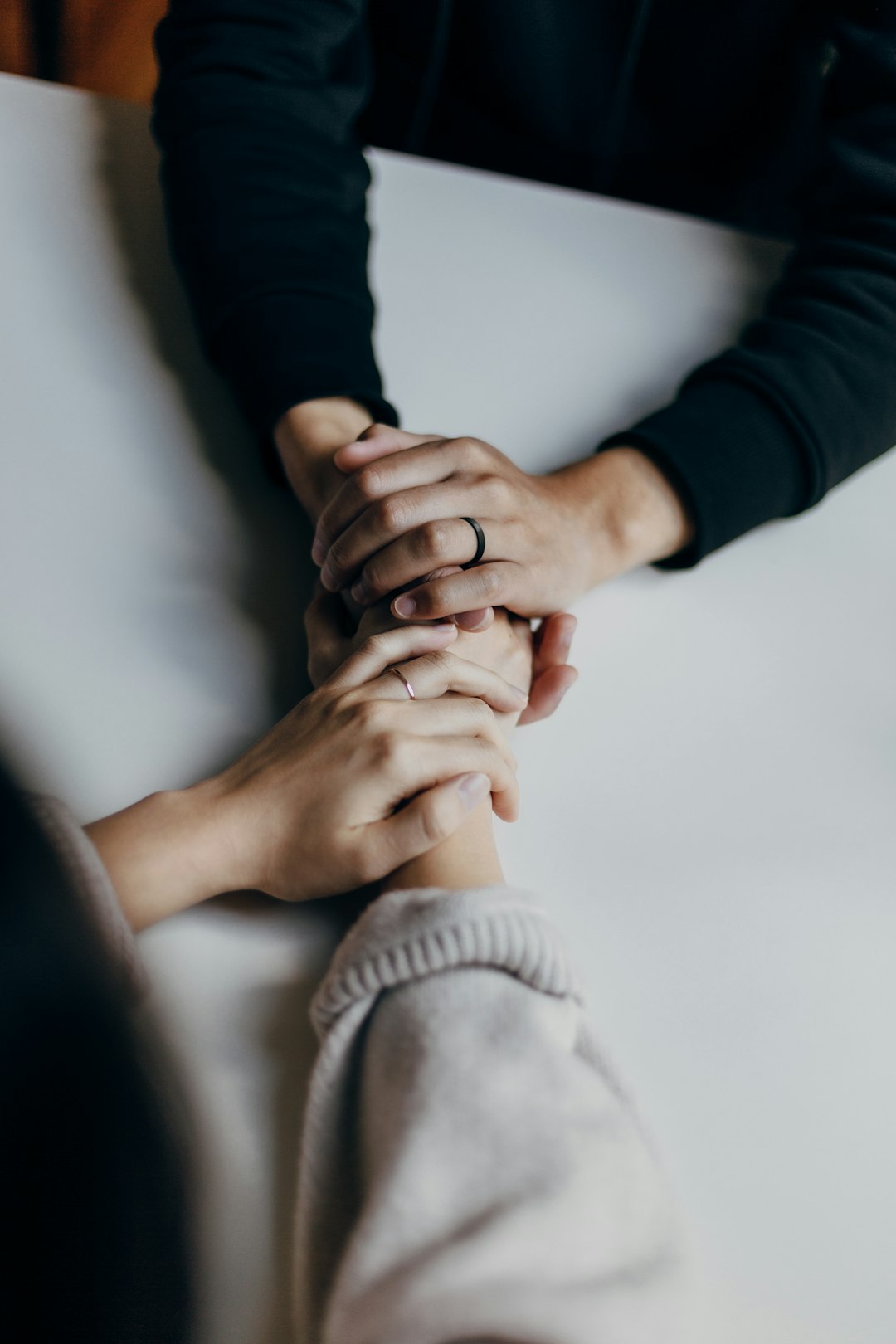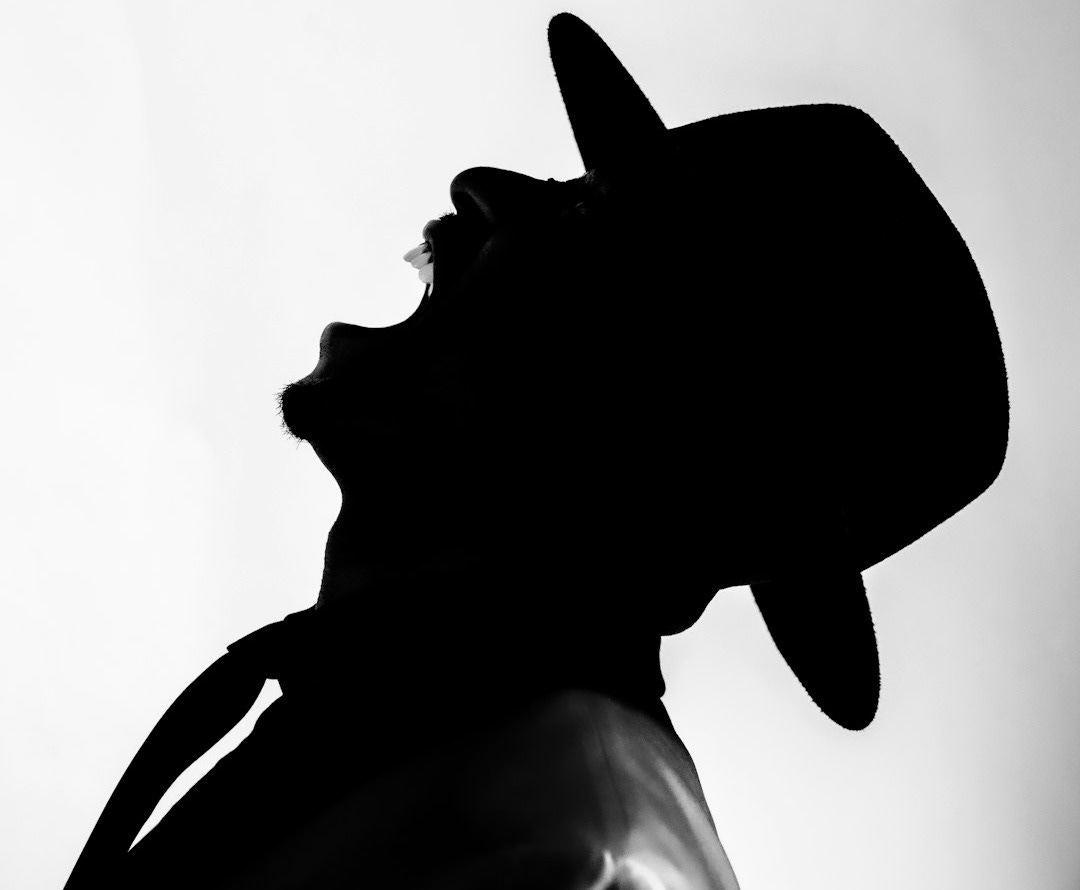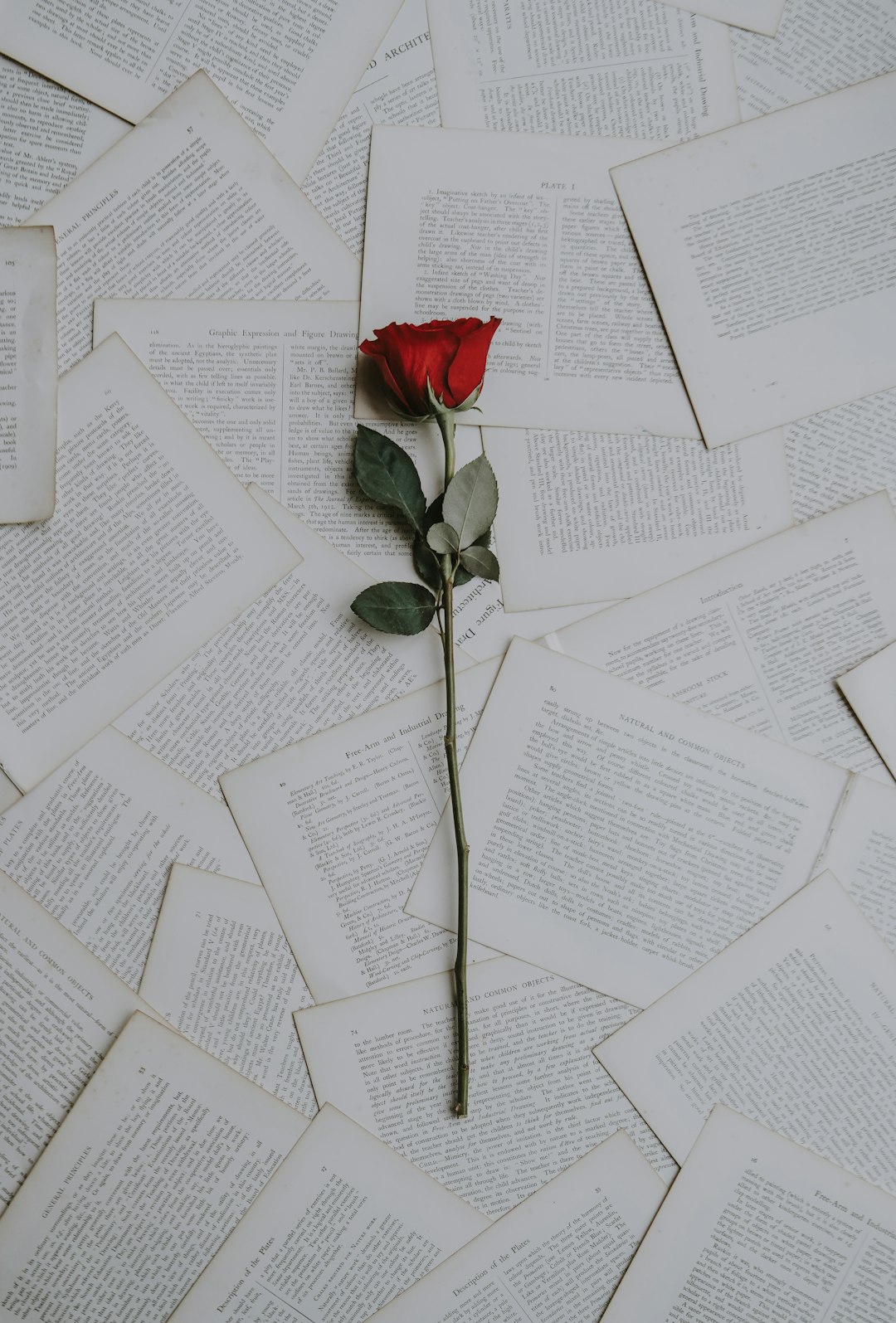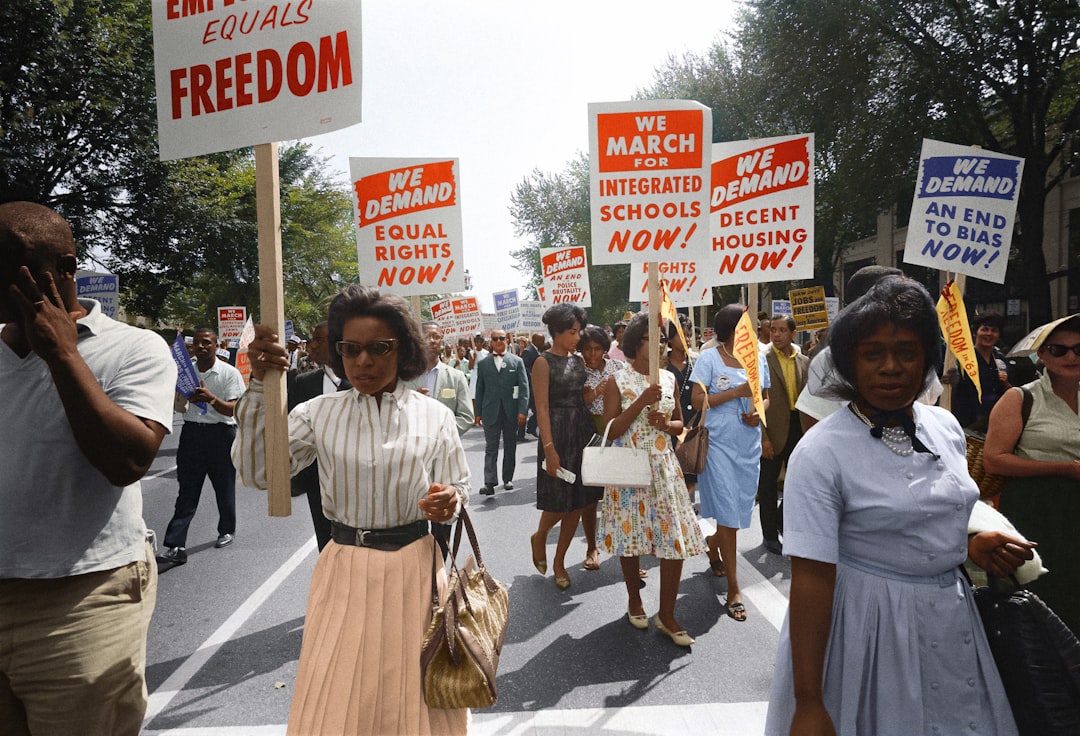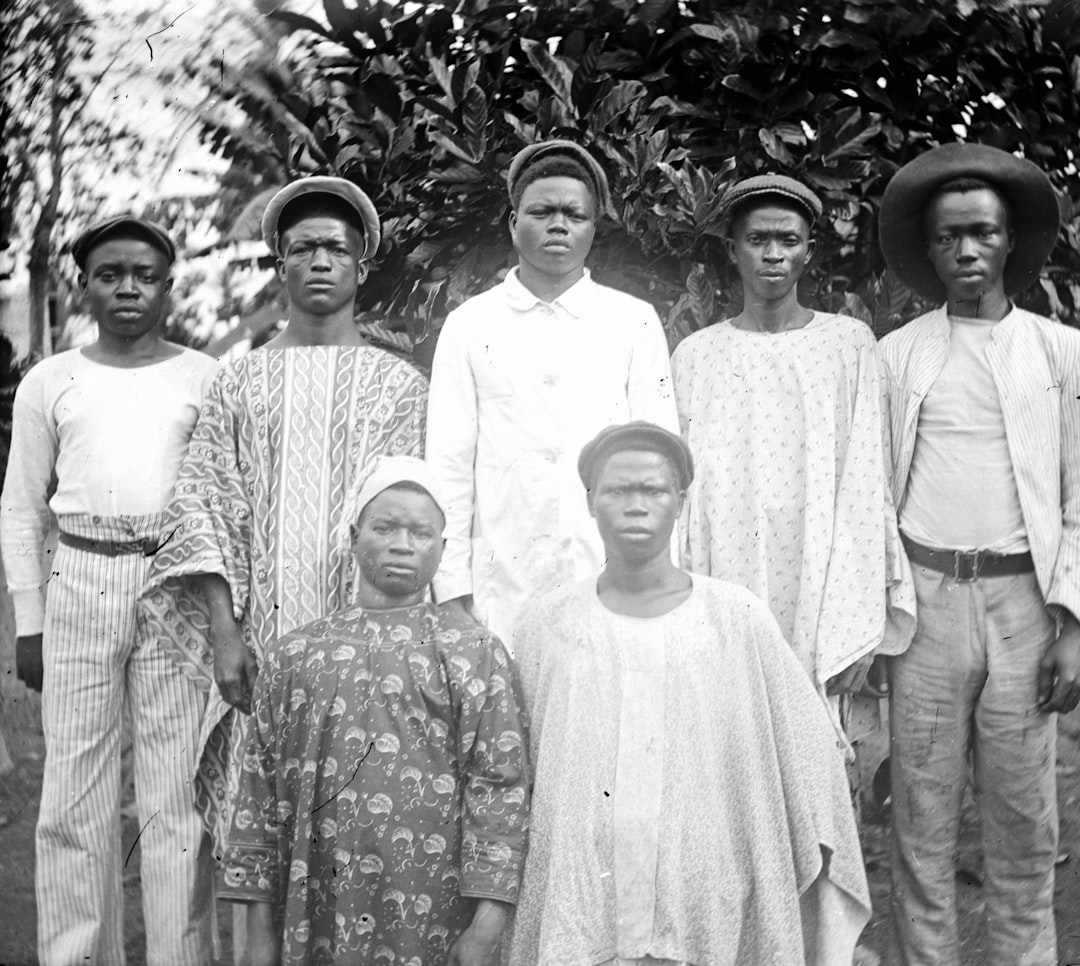Discover #WeNeedToTalk
#WeNeedToTalk

#WeNeedToTalk
Author: Malynda Hale
Subscribed: 30Played: 426Subscribe
Share
© Malynda Hale
Description
#WeNeedToTalk is hosted by singer and activist Malynda Hale. Leading with the motto that everything begins with a conversation, #WeNeedToTalk is centered around heartfelt one on one conversations, with an emphasis on social justice, politics, religion, society, and culture. Listeners will enjoy meaningful discussions with Malynda and a variety of special guests.
malyndahale.substack.com
malyndahale.substack.com
219 Episodes
Reverse
Thank you ArleneMach, Maura Rogers, Karen C, and many others for tuning into my live video with Shannon Watts! Join me for my next live video in the app. This is a public episode. If you'd like to discuss this with other subscribers or get access to bonus episodes, visit malyndahale.substack.com/subscribe
This is a public episode. If you'd like to discuss this with other subscribers or get access to bonus episodes, visit malyndahale.substack.com/subscribe
Thank you Barbara, Lori Frank, Justine Bailey, Nicole Fonarow, and many others for tuning into my live video with Rabbi Sandra Lawson! Join me for my next live video in the app. This is a public episode. If you'd like to discuss this with other subscribers or get access to bonus episodes, visit malyndahale.substack.com/subscribe
This is a public episode. If you'd like to discuss this with other subscribers or get access to bonus episodes, visit malyndahale.substack.com/subscribe
This is a public episode. If you'd like to discuss this with other subscribers or get access to bonus episodes, visit malyndahale.substack.com/subscribe
This is a public episode. If you'd like to discuss this with other subscribers or get access to bonus episodes, visit malyndahale.substack.com/subscribe
This is a public episode. If you'd like to discuss this with other subscribers or get access to bonus episodes, visit malyndahale.substack.com/subscribe
Thank you to everyone who tuned into my live with Jessica Yellin video! This is a public episode. If you'd like to discuss this with other subscribers or get access to bonus episodes, visit malyndahale.substack.com/subscribe
Thank you Janice Berkley, H.E.R.O. Report, and many others for tuning into my live video with Jessica Knurick, PhD, RDN! Join me for my next live video in the app. This is a public episode. If you'd like to discuss this with other subscribers or get access to bonus episodes, visit malyndahale.substack.com/subscribe
Join me for my next live video in the app This is a public episode. If you'd like to discuss this with other subscribers or get access to bonus episodes, visit malyndahale.substack.com/subscribe
Thank you Rousercw, Erika Marie, Elaine Newton, sarah, and many others for tuning into my live video with Van Jones! Join me for my next live video in the app. This is a public episode. If you'd like to discuss this with other subscribers or get access to bonus episodes, visit malyndahale.substack.com/subscribe
Thank you TeeJAY, Teresa Bricker, and many others for tuning into my live video with Rev. Benjamin R. Cremer! Join me for my next live video in the app. This is a public episode. If you'd like to discuss this with other subscribers or get access to bonus episodes, visit malyndahale.substack.com/subscribe
Join me for my next live video in the app This is a public episode. If you'd like to discuss this with other subscribers or get access to bonus episodes, visit malyndahale.substack.com/subscribe
Thank you Stephen Douglas Scotti, Mary Hinson, Avaglover, carolyn strawn, Katie, and many others for tuning into my live video with John Pavlovitz! Join me for my next live video in the app. This is a public episode. If you'd like to discuss this with other subscribers or get access to bonus episodes, visit malyndahale.substack.com/subscribe
Ever since college, a large number of my interactions with people who label themselves as Christians have been utterly disappointing. I don’t expect Christians to be perfect (after all, who is?), but they’ve tended to put themselves above others because of their belief system. After all Jesus was, among other things, a shining example of morality, so maybe it’s not a surprise that some Christians have given into the temptation to see themselves as morally superior.The problem is that these people don’t seem to apply a higher moral standard to themselves. Instead, their superiority is directed at others through dismissiveness, hurtful words and excluding others.My time at a Christian college made this clear. I was told that the gay church down the street was sad because their members actually believed they could be saved. I was told I was the whitest Black girl some classmates ever knew, and that I “disgusted” them for not voting for George Bush. And I remember the visceral anger from many when the school hired its first female pastor. I recall the gossip, the hypocrisy and the deep micro-aggressions.This type of Christianity misunderstands the teachings of Jesus. And it takes so much more energy to condemn people instead of love them. As someone who does her absolute best to follow the teachings of Christ, I want to change that narrative. Striving to be a good person shouldn’t take so much effort.Choosing to love people is also easier because there’s no need to put conditions on our love. Working to live like Christ means advocating for everyone, but not in an “All Lives Matter” way which is still motivated by the impulse to exclude.Being a Christian is a choice, but so is choosing what type of Christian you want to be. You could be one that lives for yourself and your group and that views your actions as above others, or you could be the Christian that lives for others and recognizes that selfless love is closer to the teachings of Jesus.If you aren’t choosing to love everyone, then what is it you believe in exactly? And what are you doing to be a better person?#WeNeedToTalk is a reader-supported publication. To receive new posts and support my work, consider becoming a free or paid subscriber. This is a public episode. If you'd like to discuss this with other subscribers or get access to bonus episodes, visit malyndahale.substack.com/subscribe
The church was a crucial part of my upbringing, as it has been for so many others in the Black community. The church I grew up in gave me my progressive and affirming faith and also provided me with my biggest cultural connection to the Black experience. It also gave me the part of our culture that has had the biggest impact on me: music.I have been a singer and a musician my entire life. It’s what I got my bachelor’s degree in, and it’s something I shared with my dad growing up. He was a musician who grew up in Clarksdale, Mississippi in the forties, and his connection to music is something I’ve always appreciated, especially as I’ve gotten older. I remember how certain songs by his favorite artists like Sam Cooke, Stevie Wonder, Ray Charles and Gladys Knight made him feel a certain way. Whether it was their rhythms, stories or the way they carried their voices, there was always something different about the way Black artists conveyed a message through their music.Music has always been an essential part of Black Culture. And the music that our culture has created is something that is consistently emulated around the world.The musical offerings of the Black community were initially from enslaved people singing in the fields—what we know as negro spirituals. It was a way to get through and endure their suffering. Songs like “Swing Low, Sweet Chariot” and “Sometimes I Feel Like a Motherless Child” were sung in churches and in fields. At times they were even used as ways to deliver messages and signals on the Underground Railroad. But more often than not, spirituals were used as a way to stay in good spirits and overcome adversity.Our ability as a people to find joy even in the hardest times goes back to slavery. But over time we evolved from singing in the fields as a coping mechanism, to being able to express the full scope of our emotions through our music. This started with the transition from spirituals to gospel and then to jazz, which played a pivotal part in Black history when Black voices were often silenced. Jazz was the language of liberation.From our pain to our joy, the Black community also cultivated rock and roll, hip hop and of course rhythm and blues. Our contributions to the music industry and to broader culture are immeasurable, and the list of Black artists in each genre that we have been blessed with is endless. Yet the biggest impact from our music is its very existence—our words, our sounds, our collective experience in this country—shared among us and increasingly shared around the world.#WeNeedToTalk is a reader-supported publication. To receive new posts and support my work, consider becoming a free or paid subscriber. This is a public episode. If you'd like to discuss this with other subscribers or get access to bonus episodes, visit malyndahale.substack.com/subscribe
These days it's not just simple disagreements that keep us from connecting with people we once looked to as close friends, colleagues, or even family. We’ve discovered through political differences that our very morals and convictions--the beliefs that guide us and all we do--are completely opposite from people we once were close to, and it makes the feeling of loss at times unbearable.We've not only lost the ability to have meaningful conversations with them, where curiosity and a thirst for knowledge fueled the interactions, but the willingness to change and listen to others' perspectives has gone out the window. The viewpoints of some friends and family members have molded into something so pointed and immovable that they drain our capacity to have deeper conversations. These test our relationships, unfortunately sometimes past the breaking point.It’s hard wanting to converse with people while knowing that they always seem tethered to certain views. A conversation might start on a benign topic and without warning it's redirected to a hot-button, anger-inducing issue. At these times we aren't engaging solely with our friend or family member but also interacting with their ideologies that seem to shadow them at all times. And these ideologies have consequences for not only them but the people they claim to love.So where do we go from here? How do we move forward and figure out how to co-exist with those we once loved and held dear after their choices have caused so much harm?My simple advice: love them anyway, but realize that trust and regular access to you doesn’t need to be part of the equation.It's hard to cut off people whom we've built memories with and shared our lives. But realizing the difference between love and trust is one of the most healing things we can do during this time. Protect your peace and don’t harden your heart, but remember that you are allowed to have boundaries. This is more than political differences. This is about having moral clarity.#WeNeedToTalk is a reader-supported publication. To receive new posts and support my work, consider becoming a free or paid subscriber. This is a public episode. If you'd like to discuss this with other subscribers or get access to bonus episodes, visit malyndahale.substack.com/subscribe
Growing up in school we learned a sugarcoated version of slavery and Black history. We learned how Harriet Tubman freed the slaves, the role Martin Luther King Jr. played during the civil rights era (and became convinced that the only speech he ever gave was “I Have a Dream”) and sometimes, if we were lucky, we learned how Rosa Parks refused to give up her seat on the bus to a white man and how that action led to change.But in the wake of everything changing around us and the threat of our history being erased, we must move beyond the same few stories and celebrate Black history in a way that elevates our talents, inventiveness, intellect and contributions. Because these elements of our existence have impacted not only the United States but the world.Our history as a people in this country is unique. It was pain and suffering that brought us here and while that struggle is what connected us as a people for so long, it was our resilience and joy that kept us connected. We endured a great deal of pain and suffering but over time the diaspora found ways to repurpose that pain and suffering, flip the script and connect ourselves through the creation of a new culture.That culture is often now coveted by societies at home and abroad. Our culture sets the precedent for modern days trends, it deserves to be celebrated, taught, appreciated and honored. And it is centered around joy. Through innovation, creation, and execution, Black Americans have helped shape and build this nation in a way that no other race has and we are an integral part of its continued success.From inventors like Garrett Morgan who invented the traffic light, to musicians like Fats Domino who helped pioneer rock and roll music, or scientists like Daniel Hale Williams who performed the first open heart surgery and opened the first interracial hospital, and trailblazers like Oprah who truly show us that your dreams can indeed come true even if you come from nothing.Even though the teaching in schools is limited and now at risk of being erased all together, we know that our culture and successes have had and will continue to have a lasting impact on both this country and around the world.#WeNeedToTalk is a reader-supported publication. To receive new posts and support my work, consider becoming a free or paid subscriber. This is a public episode. If you'd like to discuss this with other subscribers or get access to bonus episodes, visit malyndahale.substack.com/subscribe
We set aside one month each year to honor, recognize and celebrate Black history. It’s an opportunity to highlight the accomplishments of the Black community in a country where Black history is otherwise so often centered on Black pain, struggle and trauma.This foregrounding of our pain has so many touch points in America, from what is taught in schools, to what is reported on the news, and what is created, monetized and consumed for entertainment. Recently I’ve been thinking a lot about the Black community’s history in this country and why I believe Black people have not received the empathy, recognition or reparations for which we have fought over the last hundred and fifty years. While we have made significant progress, there is one thing that has struck me: we as a collective do not and cannot have the documentation of what happened to our ancestors. There is simply no one around to confirm the truth. My dad grew up on a plantation in Mississippi during World War II. He has told me what he remembers about his family history, but at a certain point his memories reach their limit and nothing else tangible exists that he can reference. This is the reality for the majority of Black Americans. While some journals have been uncovered, it pales in comparison to others’ genealogies. We as a community may never see the peace and acknowledgement we deserve because we have nothing to corroborate the atrocities that we know were committed. And while the accounts we do have are limited, personal testimonies can easily be refuted by someone who wants to erase the history that our ancestors actually lived. I also realized that this is why so many people don’t respect plantations and the history that took place there. When the land where humans were owned, beaten, sold and treated like animals now regularly hosts weddings and get-togethers, it bears the question: does the history of this land matter? If so, why is it not preserved and honored with respect?With the dismantling of DEI initiatives, the threat of having public school funding revoked if a school teaches history in a way this administration doesn’t like, and people refusing to atone for the past so we can move on, I have to ask: What does our future look like, how will our past be taught, and how will history remember us in this moment?#WeNeedToTalk is a reader-supported publication. To receive new posts and support my work, consider becoming a free or paid subscriber. This is a public episode. If you'd like to discuss this with other subscribers or get access to bonus episodes, visit malyndahale.substack.com/subscribe
Sending you all some love and a thank you today. I thank you for supporting the work that I do and that you find value in what I have to say. It means more than I could ever put into words.#WeNeedToTalk is a reader-supported publication. To receive new posts and support my work, consider becoming a free or paid subscriber.www.malyndahale.substack.com This is a public episode. If you'd like to discuss this with other subscribers or get access to bonus episodes, visit malyndahale.substack.com/subscribe


